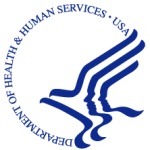- Industry: Government
- Number of terms: 33950
- Number of blossaries: 0
- Company Profile:
United States Department of Health and Human Services, Radiation Emergency Medical Management
A type of immune cell that makes proteins called antibodies, which bind to microorganisms and other foreign substances, and help fight infections. A B lymphocyte is a type of white blood cell. Also called B cell.
Industry:Health care
An aggressive (fast-growing) disease in which too many myeloblasts (immature white blood cells that are not lymphoblasts) are found in the bone marrow and blood. Also called acute myelogenous leukemia, acute myeloid leukemia, acute nonlymphocytic leukemia, and AML.
Industry:Health care
The part of the nervous system that controls muscles of internal organs (such as the heart, blood vessels, lungs, stomach, and intestines) and glands (such as salivary glands and sweat glands). One part of the ANS helps the body rest, relax, and digest food and another part helps a person fight or take flight in an emergency. Also called involuntary nervous system.
Industry:Health care
Bir kişi bilim, özellikle bir soruşturma belirli bir alanda aktif eğitim gördü.
Industry:Health care
Certain cancer types that are more likely to occur in people who are infected with the human immunodeficiency virus (HIV). The most common types are Kaposi sarcoma and non-Hodgkin lymphoma. Other AIDS-related cancers include Hodgkin disease and cancers of the lung, mouth, cervix, and digestive system.
Industry:Health care
A system used to group human blood into different types, based on the presence or absence of certain markers on the surface of red blood cells. The four main blood types are A, B, O, and AB. For a blood transfusion, the ABO blood group system is used to match the blood type of the donor and the person receiving the transfusion. People with blood type O can donate blood to anyone and are called universal donors. People with blood type AB can accept blood from all donors and are called universal recipients. People with type A or B can receive matching blood or type O blood.
Industry:Health care
A brain disorder that usually starts in late middle age or old age and gets worse over time. Symptoms include loss of memory, confusion, difficulty thinking, and changes in language, behavior, and personality. Also called Alzheimer disease.
Industry:Health care
A brain disorder that usually starts in late middle age or old age and gets worse over time. Symptoms include loss of memory, confusion, difficulty thinking, and changes in language, behavior, and personality. Also called Alzheimer dementia.
Industry:Health care
An aggressive (fast-growing) disease in which too many myeloblasts (immature white blood cells that are not lymphoblasts) are found in the bone marrow and blood. Also called acute myelogenous leukemia, acute myeloid leukemia, acute nonlymphocytic leukemia, and ANLL.
Industry:Health care
